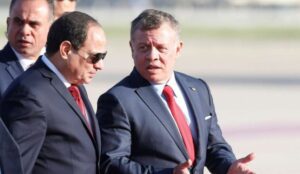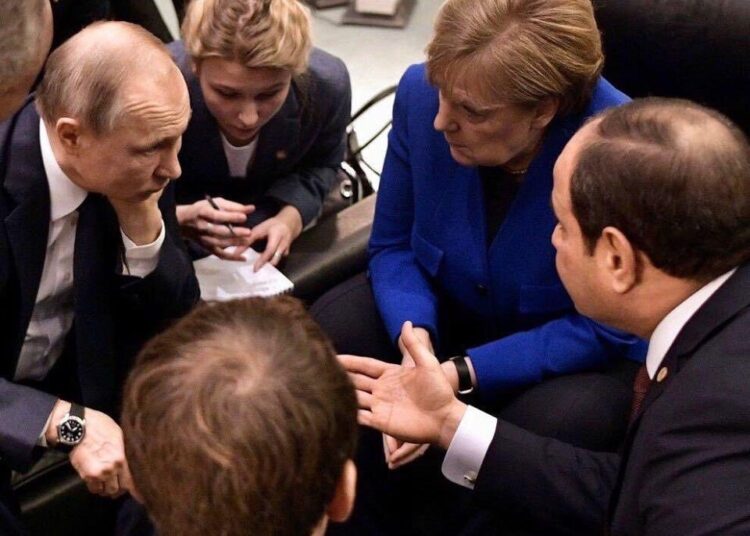Wise leadership is all that Egypt needed to restore its international position in seven years under the rule of President Abdel Fattah El Sisi.
The Egyptian president assumed office on June 8, 2014 and has hence worked on a new foreign policy that went hand in hand with an ambitious internal policy.
A confident diplomatic approach unfolded by the day, with Egypt adding more friends and joining new regional and international alliances.

In his inauguration speech, Sisi had said that Egypt should remain open to the world, while its policies with friendly countries should be determined based on their willingness to cooperate with Cairo in a way that best served interests of the Egyptian people.
Relations should be based on mutual respect without interference in domestic affairs – this is in the heart of Egypt’s foreign policy, which also supports peace and stability in the region and the world.
It is one that strongly adheres by principles of international law and conventions, and pays big attention to the economic aspect of any relationship.
In seven years, Egypt attained a non-permanent seat at the UN Security Council, headed the anti-terrorism committee of the UNSC, presided over the Arab Summit, chaired the African Union (AU) Peace and Security Council (PSC) and was chosen head of the AU.
President Sisi made many international visits and attended many regional and international events that served Egypt’s political and economic interests.
Egypt, under Sisi, has maintained constant stances toward the situation in Syria, Libya, Yemen and Iraq – but the Palestinian cause, as usual, tops all Egyptian priorities.

Cairo will always defend the lawful rights of the Palestinian people, atop of which their right to establish their independent state on the pre-1967 borders, with East Jerusalem as its capital.
Just recently, Egypt brokered a truce between Israel and the Palestinians following a war in the Gaza Strip that even major world powers failed to bring to an end. Egypt could. It was able to reach a ceasefire agreement to prevent further Palestinian bloodshed. This reflected Egypt’s effective power in the Middle East region.
The situation along Egypt’s western border has also been another matter of concern, with Cairo moving to promote a political solution and end the military conflict in neighboring Libya.

That’s why Egypt formed a national committee concerned with the Libyan crisis as part of its efforts to restore security and stability in that Arab country.
The crisis in Syria has also topped the agenda of the Egyptian foreign policy, with Cairo acting to put an end to the suffering of the Syrian people and the conflict in their homeland.
Sisi’s Egypt has always supported efforts to reach a political settlement to the Syrian crisis, while maintaining Syria’s unity, independence and sovereignty.
Egypt has been an active participant in many international gatherings on Syria with the aim to peacefully solve the Syrian problem.
The situation in Yemen has also been an issue of great concern to Egypt, whose leadership clearly supported a peaceful settlement and national dialogue that would lead to a consensus in that Arab country.
Egypt has urged all political parties in Yemen to resume internationally-sponsored political negotiations based on the Gulf initiative.
Seven years on, Egypt is still acting, through the nicety of a diplomatic exchange, to defend its interests and the interests of sisterly countries.
Egypt will always be the throbbing heart of the Arab world, MENA reported.






Discussion about this post